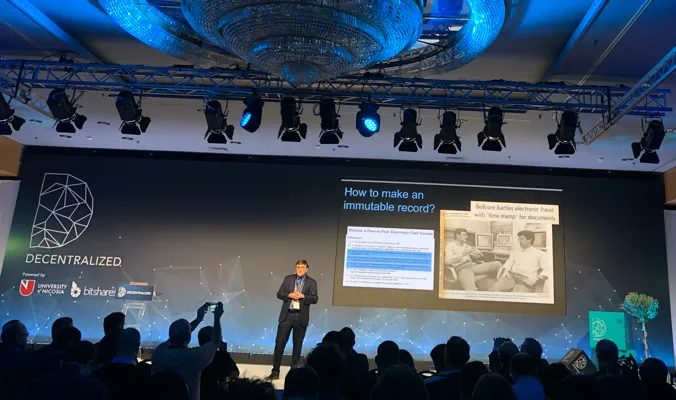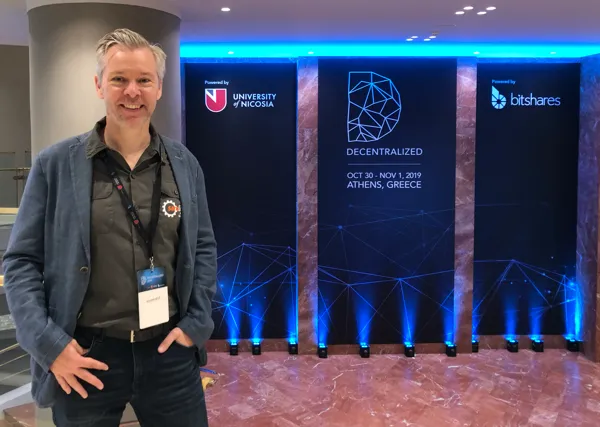The world of cryptocurrencies and blockchains is turning continuously and with huge velocity. We have got an impression of this development on the decentralized 2019 in Athens from the 30th October to the 01st of November 2019. We use the conference to get an update of the topic and to get in touch with others for our blockchain project.
The conference was held for the third time by the university of Nikosia, Cyprus. UNIC (University of Nicosia) can be seen as a pioneer of blockchain and cryptocurrency oriented education and training, with its numerous online offers. The free online course: DFIN 511: Introduction to Digital Currencies is very informative and highly recommended.
Once more the unbroken interest for the latest trends of this industry is shown which exceeds the limits of bitcoin. The conference has drawn a bow with three different tracks, from the technology and business to the research.
It was not surprising that the STOs (Security Token Offerings) with its necessary regulations were in the spotlight. The importance of the topic was highlighted in various presentations and panel discussions. A discussion about the “tokenising of the society” was stimulated. An insight of a possible future of trading was shown, far away of the current status quo.
The bow of the tokenization is drawn, beginning with the physical goods like real estate until the non-tangible goods like rights on the future income. Examples for that are students who finance the studies with tokens, or athletes who gain funds via tokens at the beginning of the career and refund them later in form of dividends.
To realise that a middle-man is still needed, a so-called validator who evaluates physical goods und secures that these goods are existing, too. An example for that is a valuable painting which can be traded unbureaucratic world-wide with a token.
To establish such a plan on a legal base the financial places like Lichtenstein bring into position with respective regulations. More of that you can find in an interview in Euro published on Sunday, led by Adrian Hasler, head of the government of Liechtenstein.
Fabian Schuh addressed in his keynote with the topic “Becoming Sufficiently Decentralized” the question, what in detail “decentral” in the sense of the blockchain means. And Scott Stornetta discussed very informatively the question “how to make an immutable record” in his keynote with the topic “Rethinking Blockchain’s Holy Grail and How to Get There”.

The classical separation between “public” and “private” blockchain implementations with suitable use cases seems to be broken through. For example, the international research project Sofie (Secure, Open Federation for Internet Everywhere) is engaged with the question how private and public blockchains can be connected in the IoT area. The EU funded project is part of Horizon 2020 and has project partners from Finland, Italy and Greece.
From the technical side, notable infrastructure providers like Google, Microsoft Azure, IBM and also Oracle prepare to offer blockchain implementations as a service for enterprises, so-called BaaS (Blockchain-as-a-Service). Especially for private blockchain applications various solutions are offered, above all Hyperledger Fabric implementations, in which we are specialised, too. Marta Piekarska - director of the ecosystem Hyperledger - gave a comprehensive and densed overview of Hyperledger and its ecosystem.
After the conference is before the conference and therefore, preparations are already made for the next year where the conference takes place in Limassol, Cyprus from 12th to 13th of November 2020. More about that under decentralized.com.











